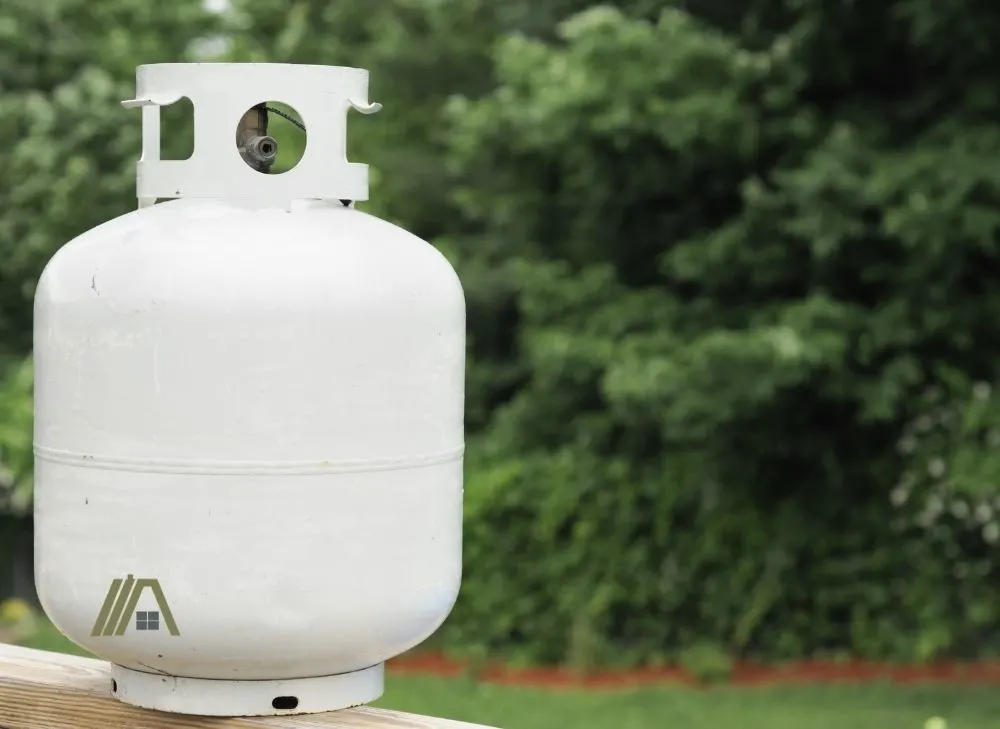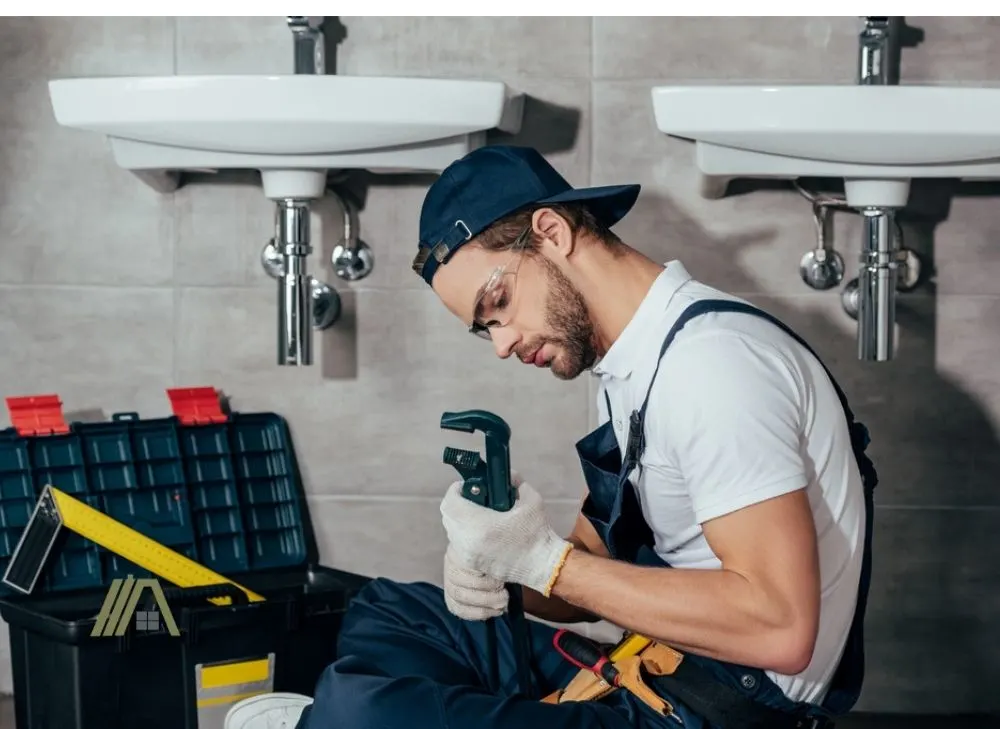Gas dryers have proven far more economical and efficient than their electric counterparts. Now comes another important consideration, if liquid propane is more eco-friendly and sometimes more accessible, how easily can you change over to the alternative gas?
While there are several important steps to follow to make your dryer function safely and effectively on propane gas instead of natural gas, not much about your dryer and gas system needs to change. A gas dryer is used for both gas types, and aside from organizing the gas supply, you can easily buy the parts required to convert the system.

Natural gas dryers can be converted to liquid propane if a pressure regulator and the burner’s propane orifice that comes with conversion kits are installed. Propane cannot be safely used without these modifications. Aside from the propane tank, little else needs to change for the dryer to work.
Can’t Connect Propane to Natural Gas Dryer As Is
There isn’t a lot that needs to change for you to connect your propane to the dryer. The appliance and the venting system will remain the same. However, although the necessary changes may seem small and insignificant, they are important for your safety and getting the best performance from your appliance.

You cannot connect liquid propane gas to your natural gas dryer without making some changes to the dryer and the connection.
The burner for the propane dryer is different from the natural gas dryer according to capability, pressures, and heat. This means that they are not interchangeable.
The other major roadblock preventing you from merely plugging in a different gas supply is the gas connection for the dryer. Propane needs different connectors.
Liquid propane is delivered at a higher pressure than natural gas, making it necessary to have a nozzle with a smaller diameter. You would end up with an alarmingly large flame heating the dryer element if you don’t adjust the connection. This is damaging to the heating element and can be dangerous.
Can Convert Natural Gas Dryer to Propane
Unlike converting a gas dryer into an electric dryer, which is not even worth the trouble, it is not difficult to convert a natural gas dryer into a liquid propane gas dryer. You just need to get a converter kit and maybe a regulator if your system doesn’t have one built-in.
How to Convert Dryer
Part of converting from natural gas to liquid propane is the addition of a propane tank. Unlike natural gas, which comes from the gas lines, propane is stored separately in a tank that must be connected to the dryer.
Once you have your supply of propane, you need a pressure regulator. The regulator attaches to the tank valve with a pigtail (a flexible piece of piping) and it connects to the gas pipes that run into the house.
You need a conversion kit for the connection between the pipes and the dryer to stabilize and control how much propane is going to the appliance at any one time.
You get conversion kits for different brands of dryers such as the:
- GE Conversion Kit (amazon link).
- Samsung Conversion Kit (amazon link).
- Kenmore by Rayhoor Conversion Kit (amazon link).
- Whirlpool Conversion Kit (amazon link).
These kits are also available from the brand and other local stores.
The instructions for the conversion are contained in the user manual of the kit you purchase. The kits listed above come from the manufacturers for their specific dryer brand. While generic kits may work, in my experience, getting branded parts will help with warranties and customer support for the appliance.
You need to replace the natural gas orifice on the dryer’s burner with the orifice from the kit that is designed for liquid propane gas and its heat.
It is important to read and adhere to the instructions included with the kit. Some instructions may direct you to hire a professional to convert the dryer. Disregarding this could lead to warranty and insurance problems if your dryer needs servicing or repair or if it is responsible for any damage to your home.
Below are a few videos on how to do the conversion with different dryer models:
Who Is Qualified to Make the Conversion?
For safety reasons, I always recommend hiring a professional for installing, servicing, repairing, or making changes to gas appliances.
The person qualified to perform and check the conversion is a licensed plumber. You might also be able to find a licensed technician with a local gas company. These professionals will ensure that the appliance (including the vent system) and the gas line are safe and free of blockages and leaks.

The liquid propane tank will be installed on your property by a gas company regardless of who makes the conversion for the dryer. So, you will have to pay for the gas and tank.
At the end of the day, whether or not you do it yourself, you are going to need to pay the call-out fee for a safety check. You also need to think about things like your insurance and product warranty, which may require you to outsource the work.
When converting to liquid propane, you will also have to install a drip leg (unless your setup already contains one). These prevent the condensate associated with wet gases like propane from causing issues.
Note: drip legs and sediment traps are not the same.
Benefits of Switching to Propane
- Since you can convert the actual gas connections for the tank and dryer, making the switch to propane doesn’t mean you need to buy a new dryer or lay any new pipes if you already have a gas dryer set up. You don’t need to worry about construction noise and dirt.
- Propane is considered a “clean” fuel type because it has lower carbon dioxide emissions than some alternatives.
- Liquid propane is more energy-efficient than both electricity and natural gas, meaning that less goes a long way in powering your dryer.
- Propane dryers are more effective for drying clothes, and can even help de-wrinkling them, as they can produce more heat without costing you a fortune. In addition, you will likely find that your clothes are drying faster, further saving you money as the dryer can run for less time.
- Buying larger quantities of liquid propane is cheaper than small amounts, so you can find ways to save on your gas expenses, and there is room to expand your use of the gas to other household appliances.
Drawbacks of Using Natural Gas Dryer with Propane
As stated earlier, the connector for a natural gas dryer lacks the regulator needed for liquid propane. The result is too much propane being channeled to the burner because of the higher pressure levels than natural gas.
In these cases, you will end up with a massive flame and, consequentially, an excessive amount of heat. This will be blown into the dryer, where it can damage components of the appliance and where it can damage your clothing should it reach through the dryer mesh. I wouldn’t be comfortable putting my favorite sweater in the dryer with this risk.

The other drawback is the amount of LP that is going through the dryer is higher without the converter. This means that you are going to use greater quantities of gas much quicker than with natural gas or the propane nozzle. This can end up being a costly lesson.
The gas used in appliances is necessarily combustible; unfortunately, it quickly becomes dangerous when not correctly controlled and used. Without appropriate connections to regulate the gas going to the dryer, using the appliance can become hazardous.
Propane Dryers Are Available
Gas dryers have fewer running costs than electric dryers; they are also effective and energy-efficient. Propane is the greener gas option and is more widely accessible than natural gas because of how it is stored.
You can install a dryer with liquid propane from the start, so you don’t always have to go through the hassle of converting a natural gas dryer.
Gas dryers are manufactured for natural gas as a standard. However, the manufacturer can use a conversion kit and install the dryer with propane right away if you specify that you have propane at your house.
To help find the best dryer for you, I have included a list of brands that sell propane gas dryers:
Propane Tank Size for Dryer
To run your dryer, you will need at least a 120-gallon tank. This size can power about two appliances, but that is the limit.

So, you may decide to make the investment of a larger tank. However, as I mentioned earlier in the benefits section, bulk-buying propane can work out cheaper. This will also be a better choice if you are planning to change over to propane gas for more than just your dryer.
The 250-gallon tank will power a small house’s heating and several appliances. Larger houses will need a 350-gallon tank for the same functions.
I recommend you contact the gas company you are going to use to consult with them on the best option for you. They will likely want to know the square footage of your house so they can advise you.
Any tanks that are large enough to run a dryer will need to be refilled by a delivery truck as they are too big to transport.
Sources
https://homesteady.com/how-12178881-adjust-dryer-regulator.html
https://theinfinitekitchen.com/faq/question-can-a-gas-dryer-run-on-propane/
https://theinfinitekitchen.com/recipe/quick-answer-can-a-dryer-run-on-propane/
https://www.amerigas.com/about-propane/converting-to-propane
https://www.diversifiedenergy.com/news/propane-gas-clothes-dryers/
https://www.parkergas.com/2020/06/22/propane-tank-sizes-which-right-for-me/
